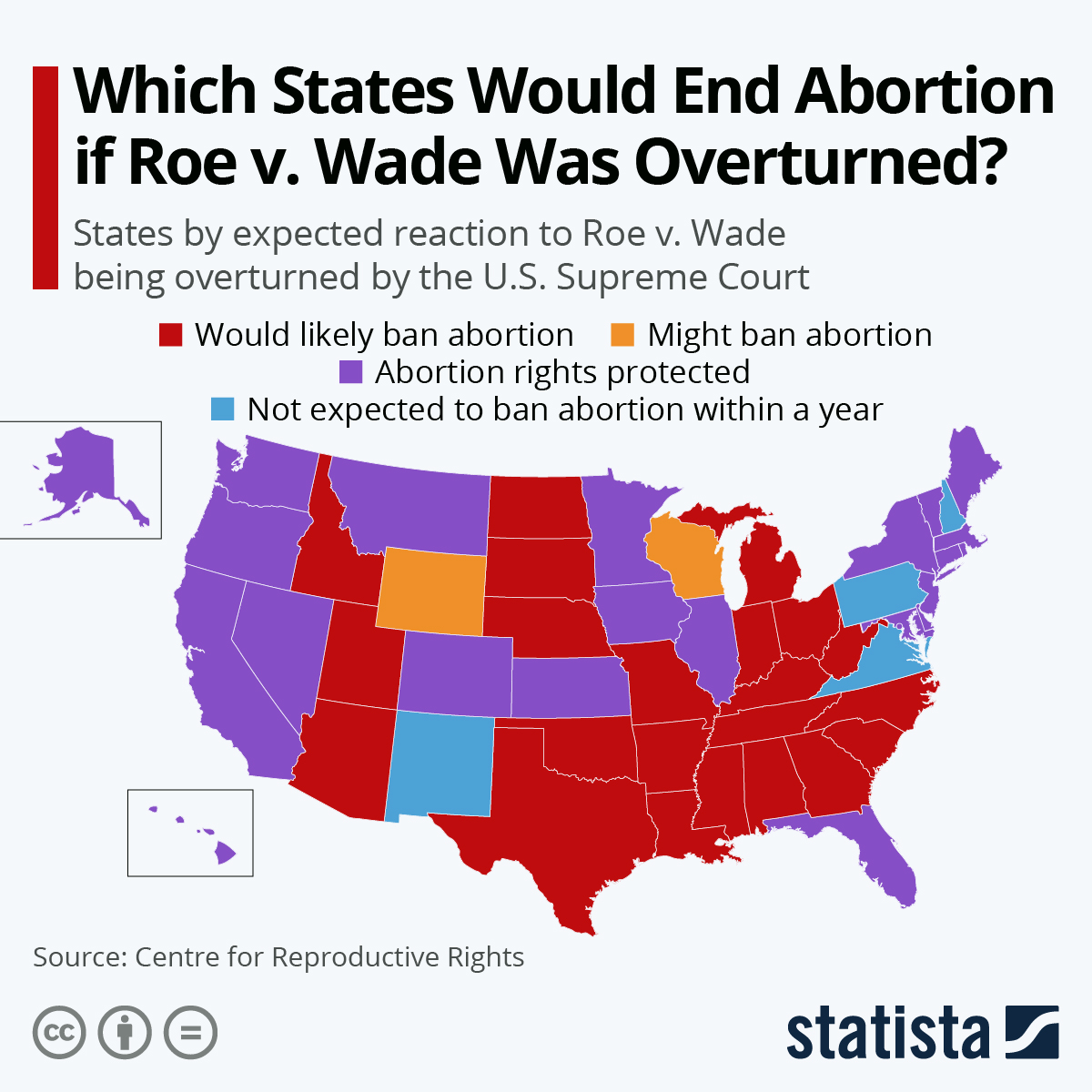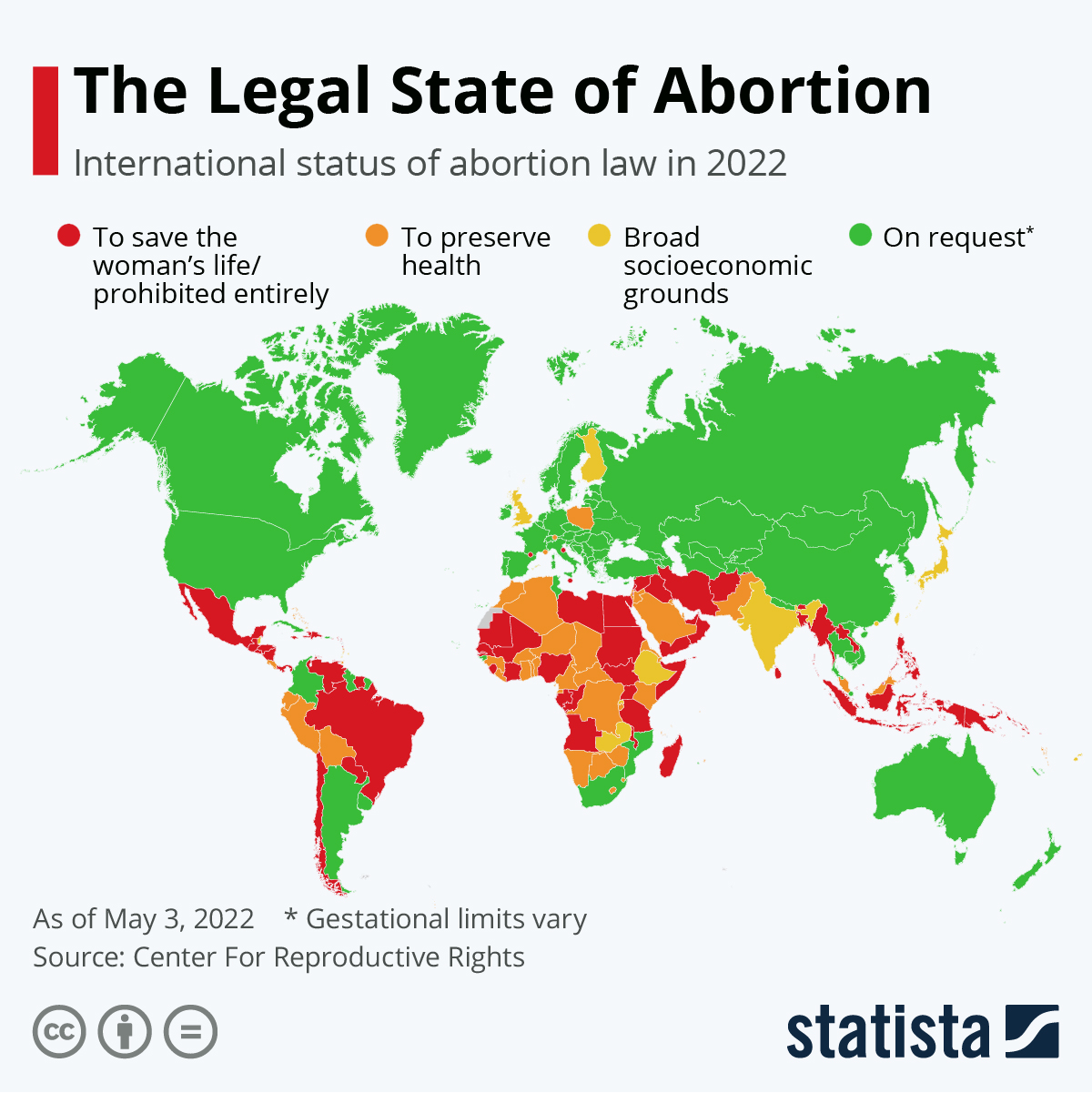
According to a leaked draft opinion reported on by Politico, the U.S. supreme court has provisionally voted to overturn Roe v Wade - the landmark 1973 ruling that legalized abortion nationwide in the United States. Reproductive rights have been put under a lot of pressure in some parts of the country recently, and an analysis by the Guttmacher Institute predicts that around half of U.S. states will take advantage of Roe v Wade being overturned by banning abortions completely.
You will find more infographics at Statista
However, as Statista's Martin Armstrong notes, the story is very different elsewhere in the world.
You will find more infographics at Statista
In February this year, Colombia decriminalized abortion during the first 24 weeks of pregnancy. This was the latest step forward for reproductive rights in Latin America after a more conservative but nevertheless significant decriminalization in Mexico in September 2021. In January 2021, Argentina had become the largest Latin American country to legalize abortion. This occurred despite opposition from the Catholic church and represented a considerable milestone in a highly conservative region.
Asia has also seen moves in favor of reproductive rights. Effective from the start of 2021, South Korea decriminalized abortion until the 14th week of pregnancy. In Thailand, parliament voted in January 2021 to make abortion legal within the 12 weeks, although penalties are still in place for those who terminate later in their pregnancies.
This world map uses data from The Center for Reproductive Rights to show the state of global abortion laws at the start of 2021.
According to a leaked draft opinion reported on by Politico, the U.S. supreme court has provisionally voted to overturn Roe v Wade – the landmark 1973 ruling that legalized abortion nationwide in the United States. Reproductive rights have been put under a lot of pressure in some parts of the country recently, and an analysis by the Guttmacher Institute predicts that around half of U.S. states will take advantage of Roe v Wade being overturned by banning abortions completely.
You will find more infographics at Statista
However, as Statista’s Martin Armstrong notes, the story is very different elsewhere in the world.
You will find more infographics at Statista
In February this year, Colombia decriminalized abortion during the first 24 weeks of pregnancy. This was the latest step forward for reproductive rights in Latin America after a more conservative but nevertheless significant decriminalization in Mexico in September 2021. In January 2021, Argentina had become the largest Latin American country to legalize abortion. This occurred despite opposition from the Catholic church and represented a considerable milestone in a highly conservative region.
Asia has also seen moves in favor of reproductive rights. Effective from the start of 2021, South Korea decriminalized abortion until the 14th week of pregnancy. In Thailand, parliament voted in January 2021 to make abortion legal within the 12 weeks, although penalties are still in place for those who terminate later in their pregnancies.
This world map uses data from The Center for Reproductive Rights to show the state of global abortion laws at the start of 2021.








